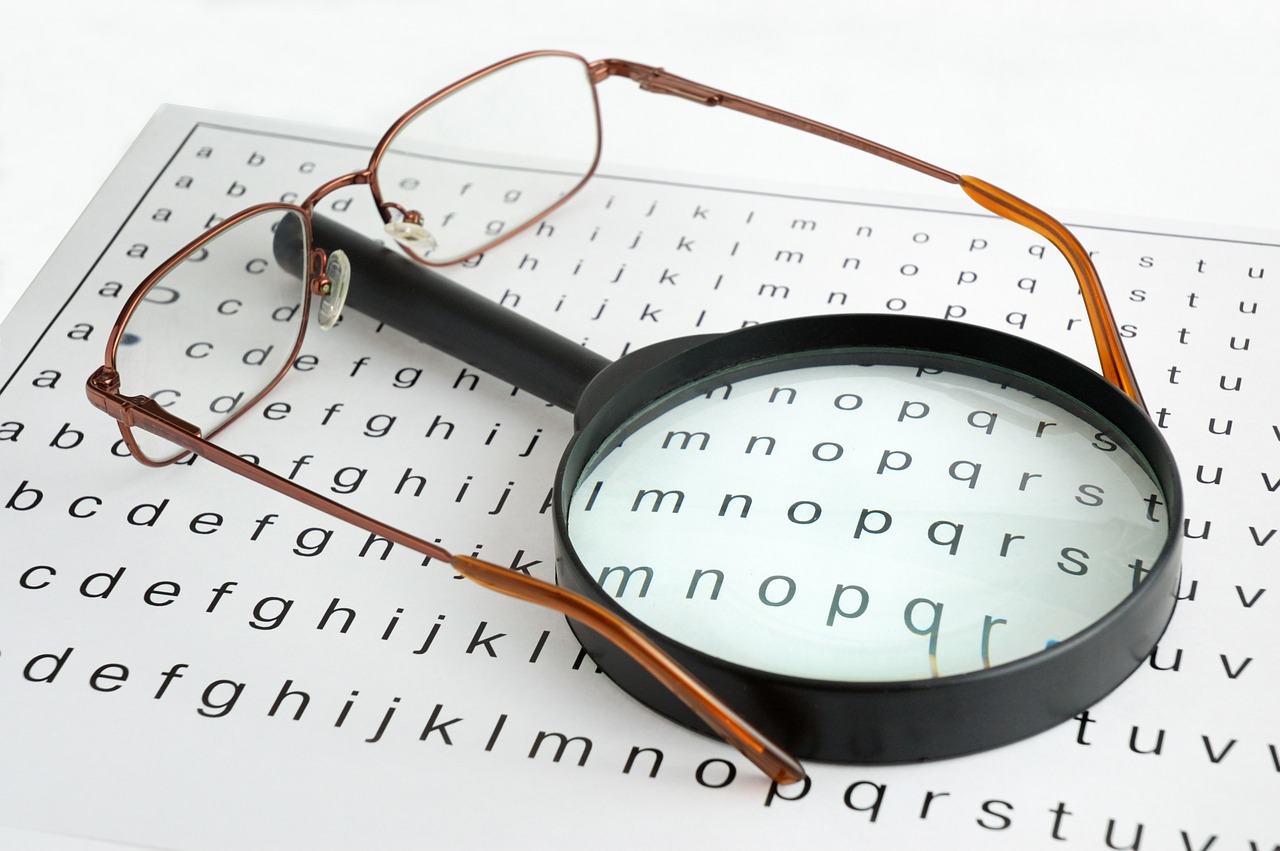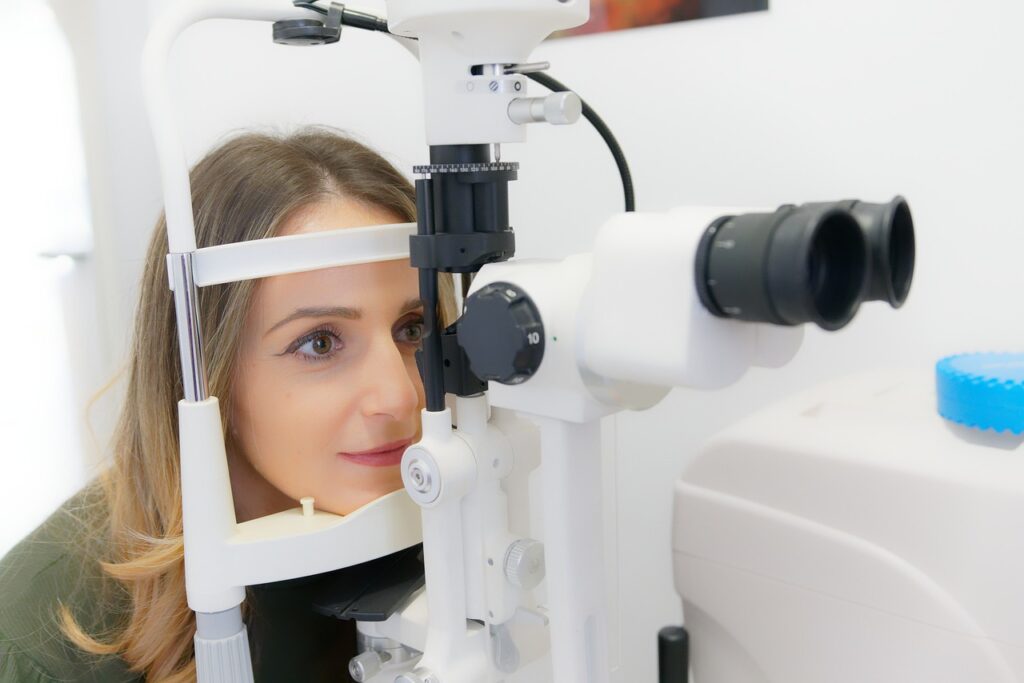Eyesight, or vision, refers to the ability to perceive the environment through light that enters the eyes.
It involves several key components:
Light Entry: Light enters the eye through the cornea, passes through the pupil, and is focused by the lens onto the retina.
Retina: The retina contains photoreceptor cells (rods and cones) that convert light into electrical signals.
Optic Nerve: These signals are transmitted via the optic nerve to the brain, where they are processed into images.
Depth and Color Perception: Eyesight also involves depth perception (understanding distances) and color vision, which are crucial for recognizing objects and navigating the environment.
Eyesight is crucial for numerous reasons:
- Safety and Navigation: Good vision helps us navigate our surroundings safely, preventing accidents and ensuring we can react quickly to potential dangers.
- Communication: Non-verbal cues, like facial expressions and body language, rely heavily on sight, enhancing our ability to connect and communicate with others.
- Learning and Development: A significant amount of learning occurs visually, making eyesight essential for education, reading, and engaging with the world.
- Independence: Good vision supports daily activities like driving, cooking, and shopping, fostering independence in personal and professional life.
- Quality of Life: Clear eyesight contributes to overall well-being, allowing us to enjoy hobbies, appreciate art, and experience nature.
- Health Monitoring: Eye exams can reveal underlying health issues, such as diabetes or hypertension, making vision care an important aspect of overall health.
Certain foods can help improve and maintain eyesight. Here are some types of food that are particularly beneficial:
- Leafy Greens: Spinach, kale, and collard greens are rich in lutein and zeaxanthin, antioxidants that help protect the eyes from harmful light.
- Carrots: High in beta-carotene, which the body converts into vitamin A, essential for good vision and preventing night blindness.
- Fatty Fish: Salmon, mackerel, and sardines are rich in omega-3 fatty acids, which can help reduce the risk of age-related macular degeneration (AMD) and dry eyes.
- Eggs: The yolk contains lutein, zeaxanthin, and vitamin A, all of which support eye health.
- Citrus Fruits and Berries: Oranges, grapefruits, and berries are high in vitamin C, an antioxidant that helps lower the risk of cataracts and AMD.
- Nuts and Seeds: Almonds, walnuts, and chia seeds are good sources of vitamin E and omega-3 fatty acids, both beneficial for eye health.
- Whole Grains: Foods like brown rice, quinoa, and whole grain bread provide vitamin E and zinc, which support eye health.
- Sweet Potatoes: Another great source of beta-carotene, they can help maintain good vision.
- Beef: In moderation, lean beef is rich in zinc, which can help prevent night blindness and AMD.
- Legumes: Lentils and beans contain zinc and other nutrients that promote eye health.
Incorporating a variety of these foods into your diet can help support and protect your eyesight over time!
Taking care of your eyesight is essential for maintaining good vision and overall eye health. Here are some helpful tips:
- Regular Eye Exams: Book comprehensive eye examinations every one to two years, or based on your eye care professional’s recommendations.
- Protect Your Eyes: Wear sunglasses with UV protection when outdoors, and consider safety glasses for activities that could cause eye injury.
- Follow the 20-20-20 Rule: When working on screens, take a break every 20 minutes to look at something 20 feet away for at least 20 seconds to reduce eye strain.
- Maintain a Healthy Diet: Eat a balanced diet rich in fruits, vegetables, whole grains, and omega-3 fatty acids. Foods high in vitamins A, C, and E, as well as zinc, can support eye health.
- Stay Hydrated: Drink plenty of water to keep your eyes moist and reduce dryness.
- Limit Screen Time: Reduce prolonged exposure to screens, and use proper lighting to avoid glare.
- Adjust Lighting: Ensure your work and reading areas are well-lit to minimize eye strain.
- Quit Smoking: Smoking is linked to an increased risk of eye diseases like cataracts and AMD.
- Manage Health Conditions: Keep conditions like diabetes and hypertension under control, as they can affect eye health.
- Get Enough Sleep: Quality sleep helps prevent eye fatigue and promotes overall health.
- Practice Good Hygiene: Wash your hands before touching your eyes, and avoid sharing eye products.
By following these tips, you can help protect your eyesight and maintain optimal eye health.
In summary, eyesight enriches our experiences and is vital for our safety, learning, and independence. Taking care of our vision is essential for a fulfilling life. Eyesight plays a vital role in how we interact with the world, affecting everything from safety to communication and enjoyment of life.


